My wife loves to cook using culinary herbs, and even though she dries her herbs to have a substantial supply, nothing beats the freshly picked herbs. She keeps an indoor herb garden throughout the colder months, and I’ve decided to share her recipe for growing herbs successfully during the winter.
Culinary herbs are the perfect additional ingredient to any meal, and they can turn even the blandest food you can think of into a tasty dish. They are packed with antioxidants and are generally easy to cultivate.
If you can’t grow herbs outside all year long, it’s worth exploring your options for growing these culinary complements indoors. While some plants require a certain degree of maintenance and do not adapt well to indoor conditions, there are a few that almost anyone can grow.
The basics for your indoor herb garden
- Light – is an essential requirement for growing healthy plants, but when you grow your plants indoors, you should ensure your plants have sufficient light, especially in winter. In general, your south or southwester facing window should be able to provide enough light for your plants to grow. The minimum direct light your herbs need is six to eight hours. If your window isn’t exposed to enough light during the day, you will need to provide lights for your plants using fluorescent lighting. Sometimes two 40-watt cool white fluorescent bulbs are enough to provide ample fluorescent light for the plants. However, the trick here is to learn how much additional light your herbs need. For example, if your window gets only six hours of natural light per day, you will need to replace the missing hours using fluorescent light. For an hour of natural light, you will have to provide two hours of artificial light. This means that you will need four additional hours of fluorescent light for the remaining two hours. Also, positioning the artificial light source should be done by considering that plants should be no farther than 15 inches from the bulbs and no closer than 6 inches. Depending on how much exposure the plants get from your light source, you might not need to rotate the pots. However, if your herbs grow with the help of only natural light, I recommend rotating the pots every three to four days so that all leaves receive enough light exposure.
- Soil – Your culinary herbs require well-drained soil to grow and thrive. It becomes mandatory to make sure the roots of the plants do not become water-logged. While some folks prefer to buy an indoor potting mix, my wife likes to prepare the soil herself to provide the herbs with proper drainage. She goes to the garden supply center, buys sand, perlite, peat moss, and organic potting soil, and mixes these ingredients equally. Also, I recommend avoiding buying plastic pots and sticking with porous clay pots since these promote better drainage and circulation.
- Water – The watering needs will vary from one herb to another, and there are some which thrive in near-dry soil, while others need constant moisture. However, she learned that culinary herbs do not grow well in soft water over the years. Water with a high sodium content will hinder the growth of your herbs and may even kill your plants. If you notice a white crusty surface forming on the soil, that’s a clear sign of sodium build-up, and it’s recommended to replace the soil with a fresh one.
- Humidity – The goal of an indoor herb garden is to provide you with fresh and succulent leaves every time you need to add flavor to your dishes. For the foliage of your herbs to remain soft and juicy, you will have to pay attention to the humidity levels in the growing area. Herbs prefer cooler air (between 55 and 70 degrees) with plenty of humidity and good air circulation. Avoid placing the pots near a hot air vent, and if the indoor air tends to be too dry, you will need to provide some evaporation to humidify the air. The easiest way to do this is to fill a tray with rocks and place the pots (each pot 5 inches apart from one another) on the rocks. Now fill the tray with water and add water each time the tray and rocks become dry.
- Fertilizer – My wife uses a light fertilizer for her herbs every two or three weeks. While the plants appreciate the fertilizing, the trick here is knowing what to use and avoiding overdoing it since too much fertilizer will damage the herbs. For fertilizing, you can use seaweed or an all-purpose 12-12-12 water-soluble fertilizer. Always look for organic alternatives when buying fertilizer.
Indoor herbs you should try growing
Certain herbs grow quickly, require low maintenance, and almost anyone can keep them growing all year. Here are a few recommendations:
- Basil – Basil is an annual plant that loves heat and near-dry soil, so you will have to make sure you don’t overwater it. Once the plant grows, you can pinch off the tips to prevent flower growth. By doing so, all the plant’s energy will be concentrated towards leaf growth and will provide you with succulent leaves. When using basil, keep in mind that the oils contained in the leaves are damaged by heat, and it’s recommended to add the herb at the end of cooking. Alternatively, you can use the leaves to garnish pizza, pasta, or sandwiches, or you can blend them with lemon juice, olive oil, and pine nuts to make a tasty pesto.
- Parsley – Parsley requires well-watered soil, especially during the growing stage, but it can survive in partial shade or full sun. To boost leafy growth, you can use a seaweed fertilizer. You can pick parsley as needed, and it’s best to cut the stems at the base to allow new leaves to grow back quickly. Use the herb finely chopped and add it to soup, stews, salads, and even omelets. You can use both the stems and leaves as needed.
- Oregano – Oregano is another heat-loving plant that needs proper soil drainage with a pH of 6.5 to 7.0. The soil should be dry between waterings. It’s a hardy plant, but it requires a full day of light (minimum 6 hours). You can harvest at its tip for continued new growth and use it as needed. However, keep in mind that oregano is stronger dried than fresh. The herb does not retain its flavor well during prolonged cooking, so it’s better to add fresh leaves at the end of the cooking process. You can use the leaves (fresh or dried) for pasta or pizza sauce or add a deep flavor to meat, fish, eggs, and cheese.
- Thyme – Thyme is a perennial herb that loves full sun and well-drained soil. The herb grows quickly from cuttings or seeds, and it’s widely used as a seasoning in Europe. Thyme can grow in almost drought conditions, and it requires a minimum of soil nutrients. It’s recommended to avoid growing the herb alongside other herbs in a mixed container. Pick the tiny leaves from their woody stems just before blooming for peak flavor. Thyme is used for flavoring many dishes. The chopped leaves can be used to stuff pork and poultry, or you can pair them with garlic and lemon and use them in pasta and fish dishes.
- Sage – Just like oregano, sage loves lots of sun and well-drained soil, which should be allowed to dry out almost completely between waterings. The ideal soil pH for growing sage is between 6.0 and 6.5 pH. The herb can be harvested as needed, and you can snip the tips regularly. It is one of the herbs that proliferate, and you can’t kill it unless you overwater it. Sage is one of the most used flavoring supplements in holiday stuffing, and it goes perfectly with poultry meat. You can also combine rosemary, thyme, and parsley to make a classic herb mix for soups. In Europe, the herb has a long history of use as a flavoring for sausages and cheese.
- Rosemary – Compared to the other herbs listed here, rosemary constantly needs moist soil. It doesn’t like dry soil or waterlogged soil, and you need to make a watering schedule for this plant to thrive. Also, the plant requires a pot at least 8 to 10 inches deep to provide enough growth for its root system. It requires ample space for growth, and you will need to transplant annually as the plant grows. You will also need to prune it now and then to give it a bushier form, and you can use the tender foliage for your roast potatoes and meat (add the leaves five minutes before you remove them from the oven). It also goes well with lamb, or in casseroles, in tomato sauces, or with baked fish or egg dishes.
- Mint – Mint is a hardy plant that can survive with as little as 2-3 hours of direct sun per day, but it does like moist soil, so it needs a rather strict watering schedule. The ideal soil pH for this plant is between 5.5 and 7.5 pH. Grow it individually and do not mix it with other herbs in a mixed container since it will compete with its neighboring plants. Nip the tips of the stems to encourage the plant to bush out and for the best flavor, keep cutting the leaves to stimulate new leaf growth. Mint leaves go well with lamb, fish, and poultry, but they are also great for salads and various beverages. In case needed, you can steep a handful of leaves in boiling water, add honey to the taste, and you will enjoy a soothing mint tea.
- Chives – grow well in full sun or partial shade, but they prefer well-watered, moist soil. The ideal soil Ph should be between 6.0 and 7.0 pH, and they require little to no fertilizer to thrive. When harvesting chives, snip the leaves from the base of the plant. Also, to keep the plant productive, you will need to cut the flower stalks off at the soil level. Chives are the most flavorful when used fresh, and you can use them in anything you want, a mild onion flavor. For example, my wife uses them for yogurt-based salad dressings and potato salads.
Concluding
Keeping an indoor winter herb garden is not complicated as long as you take care of your plants’ lighting and watering needs. While other factors such as soil composition and pH, humidity, and fertilization are essential aspects to take care of, most of the plants listed in this article will grow well enough without the need to research these topics further.
You can keep eating tasty fresh herbs throughout the colder months if you follow the advice and recommendations listed for each herb. They are low-maintenance enough that almost anyone can grow them.





























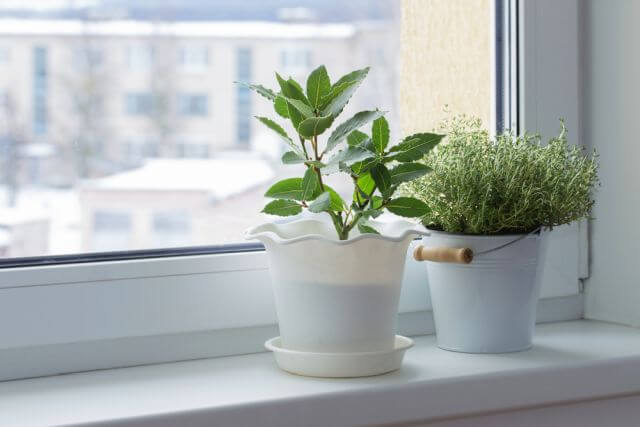



































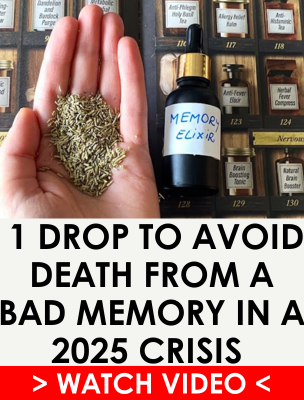


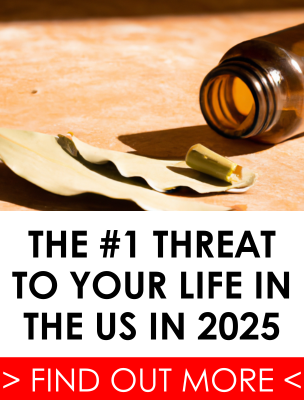

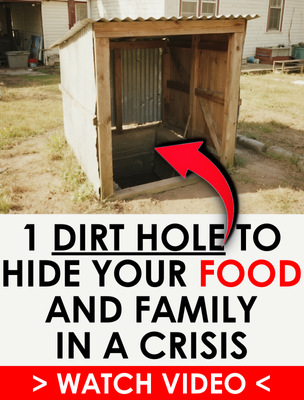

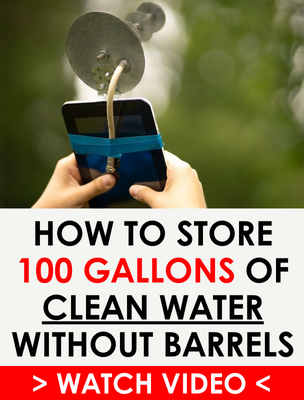


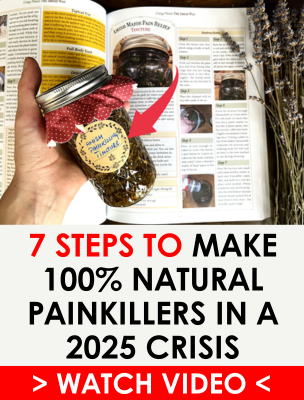

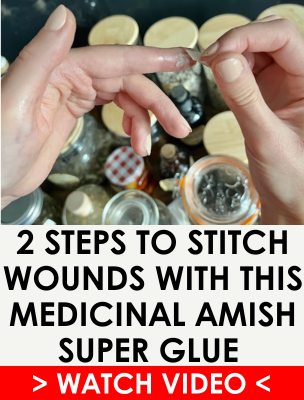







Good stuff, Bob. Funny I was just thinking of starting a winter herb garden the other day. Thanks for the tips! All the best. 🙂
Very good practical and easy to do article. Thanks for writing this as I have been wanting an indoor herb garden since we moved to a colder climate and I can’t do it outside. I have lots of houseplants but really want to do edibles as well.